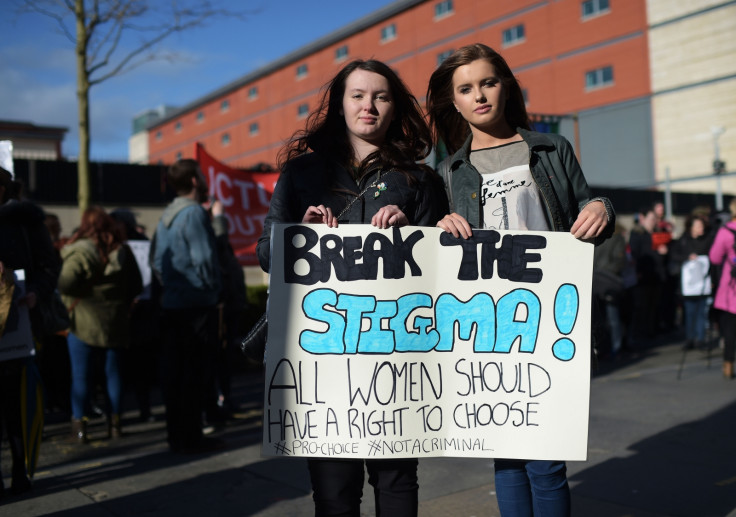Northern Ireland abortion law protest: 3 women hand themselves into police for supplying abortion pills

Three elderly women in County Londonderry in Northern Ireland handed themselves over to the police for procuring illegal abortion pills to supply to young women who were too afraid to take delivery of the pills themselves.
Diana King, 71, Colette Devlin, 68, and Kitty O'Kane, 69, walked to Strand Road police station with a prepared statement along with their solicitor on 23 May. According to their solicitor, the women were questioned for three hours and later released, pending a report to the Public Prosecution Service, according to BBC.
As soon as the three women reached the police station, a number of supporters gathered outside to protest against abortion laws. Under the 1861 Offences Against The Person Act, it is a felony to procure any drug, a noxious thing or an instrument to induce abortion.
Prior appearing at Strand Road police station, King – a retired social worker – said: "We're feeling very angry that it is illegal, that women are placed in this situation. Women that can't afford to travel to England to have a legal abortion can only access nine-week abortion pills for £60. We're very angry about that, we're very angry that women are being criminalized."
O'Kane added: "We're very well prepared for the consequences that might come." Earlier in April, a 21-year-old woman from Northern Ireland who purchased pills on the internet to induce her own abortion and was given a three months suspended prison sentence.
In addition to the 1861 abortion law, the Criminal Justice Act (1945) adds "any person who, with intent to destroy the life of a child then capable of being born alive, by any wilful act causes a child to die before it has an existence independent of its mother, shall be guilty of felony, to wit, of child destruction, and shall be liable on conviction thereof on indictment to penal servitude for life".
Abortion is permitted only in exceptional cases in Northern Ireland. Women can undergo the procedure only when their health is at risk or if there is a risk of permanent damage to physical or mental health.
© Copyright IBTimes 2025. All rights reserved.





















